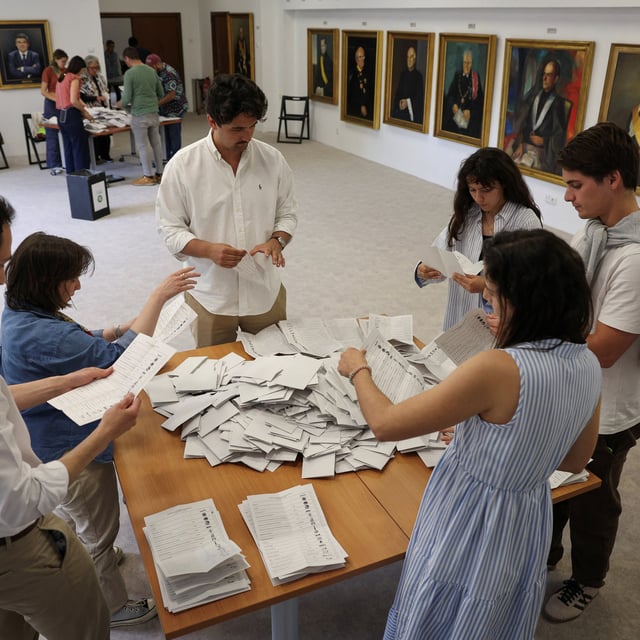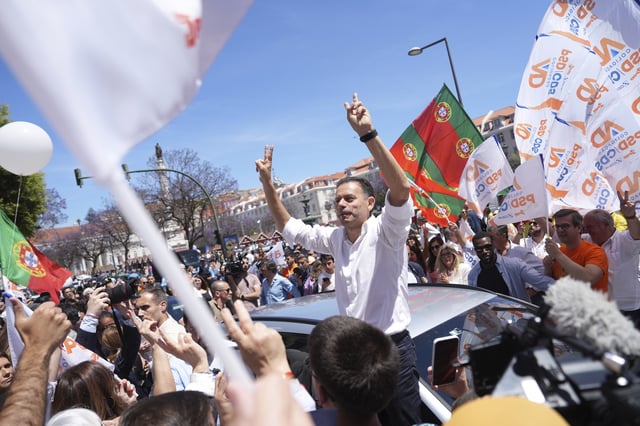Overview
- The Democratic Alliance (AD) secured the most seats in Portugal's election but fell short of the 116 needed for a parliamentary majority, continuing the trend of minority governments.
- Far-right Chega made significant gains, potentially tying with the Socialist Party for second place in parliament with 58 seats, marking its highest-ever share of the vote at 22.6%.
- Prime Minister Luis Montenegro ruled out forming a coalition with Chega, leaving him reliant on smaller parties or tacit support from the opposition to govern.
- Key election issues included Portugal's housing crisis, soaring immigration rates, and public frustration with political instability after three elections in as many years.
- The Socialist Party suffered its worst result since 1987, prompting leader Pedro Nuno Santos to step down, further reshaping Portugal's political landscape.



